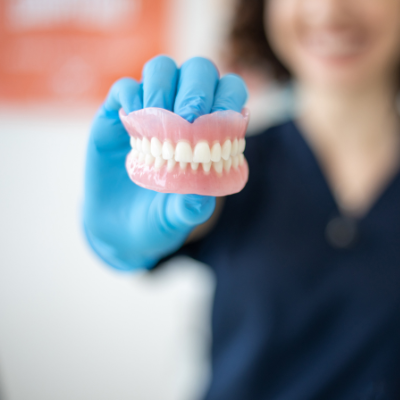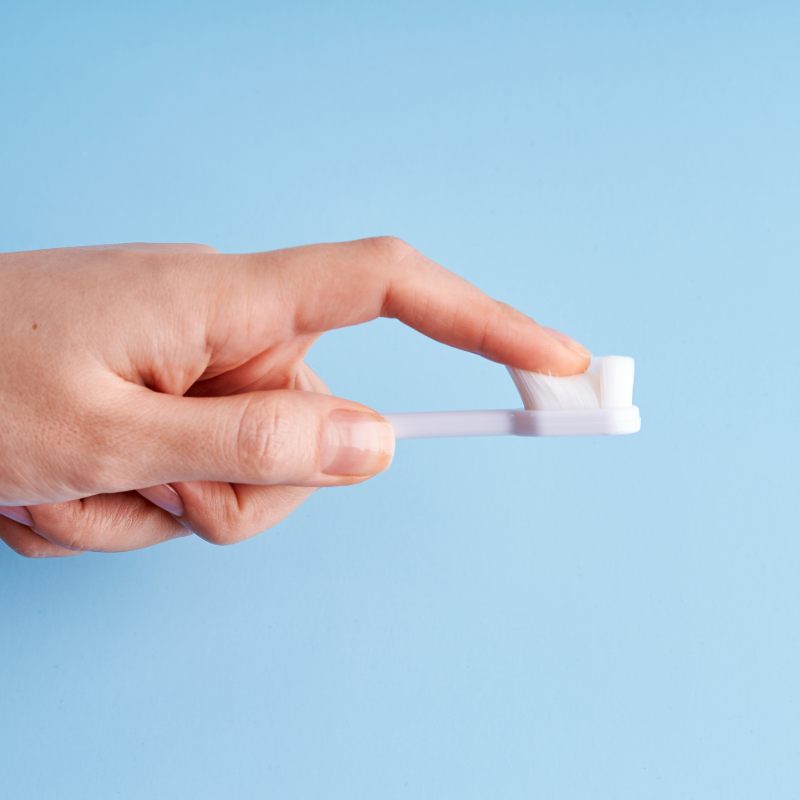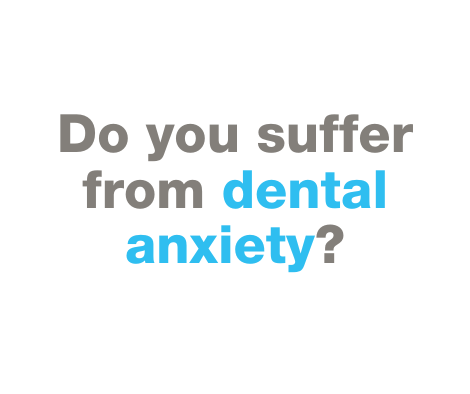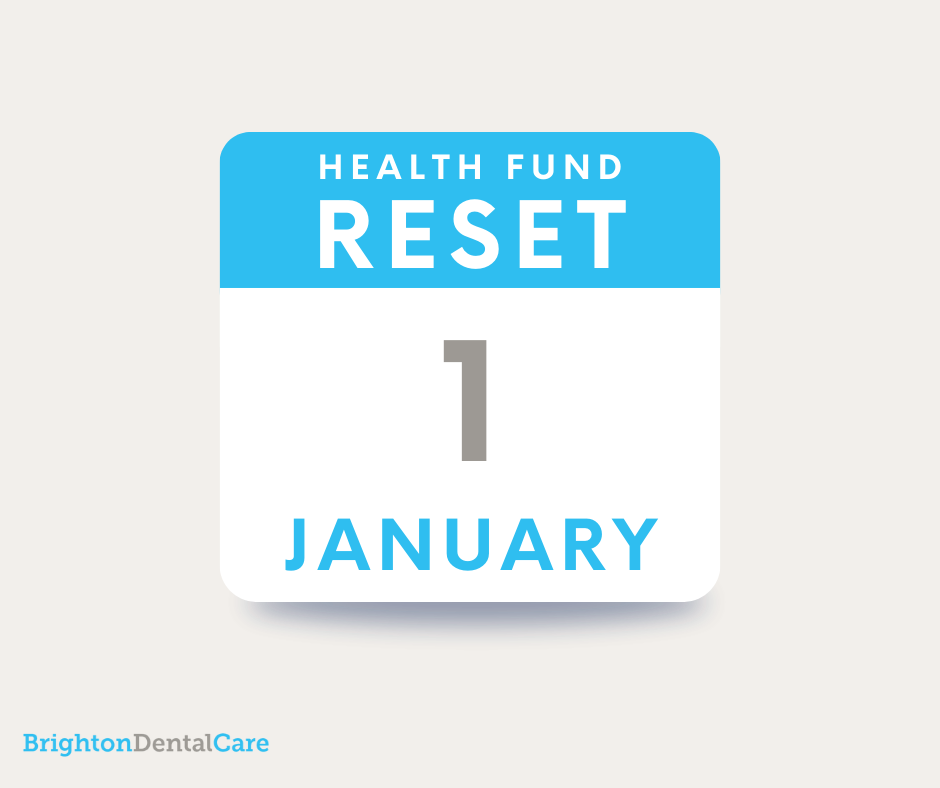Call Us Today
(08) 8377 5941
Blog
Blog

By websitebuilder
•
27 Mar, 2024
Easter is a time for celebration, family gatherings, and indulging in delicious treats. However, as dental professionals, we understand the importance of maintaining oral health even during festive seasons. In this blog post, we'll share some valuable tips to help you and your family enjoy a happy Easter while keeping your smiles bright and healthy. Mindful Treat Selection: Explore healthier alternatives to sugary Easter candies and chocolates. We'll provide a list of tooth-friendly options and creative ways to incorporate them into your festivities. Moderation is Key: While it's tempting to indulge in Easter treats, it's essential to enjoy them in moderation. We'll discuss how excessive sugar consumption can impact oral health and offer practical tips for limiting intake. The Importance of Oral Hygiene: Remind readers about the significance of maintaining a consistent oral hygiene routine, especially during holidays. We'll provide a refresher on proper brushing and flossing techniques and emphasise the importance of regular dental check-ups. Easter Basket Ideas: Offer suggestions for creating Easter baskets that promote dental health. From sugar-free treats to oral care products like toothbrushes and flavoured toothpaste, we'll help readers assemble baskets that prioritise smiles. Fun Activities for Healthy Smiles: Share engaging activities that families can enjoy together while promoting good oral health. From Easter-themed arts and crafts to interactive games that educate children about dental care, we'll provide ideas for making oral hygiene fun. This Easter, let's prioritise both joy and oral health. By making mindful choices, practicing moderation, and maintaining good oral hygiene habits, we can ensure that our smiles remain bright and healthy throughout the holiday season. Wishing you and your loved ones a happy and healthy Easter from Brighton Dental Care!

By websitebuilder
•
19 Mar, 2024
On March 20th each year, World Oral Health Day serves as a global reminder of the importance of oral health and its profound impact on individuals, societies, and economies worldwide. This annual event urges us to unite in a concerted effort to alleviate the burden of oral diseases, which afflict millions and pose significant challenges to health systems and economies globally. A Happy Mouth is a Happy Body "A happy mouth is a happy body" – a simple yet profound statement that encapsulates the essence of oral health. This year, we invite you to embark on a transformative journey alongside Toothie, our friendly dental mascot, as we explore the interconnectedness between oral health and overall well-being. Prioritising oral health isn't just about maintaining a bright smile; it's about nurturing a healthier body and mind. Understanding the Impact of Oral Diseases Oral diseases, ranging from tooth decay to gum disease, are pervasive health concerns that affect individuals of all ages and backgrounds. Beyond causing physical pain and discomfort, these conditions often result in social isolation and a loss of self-confidence, impacting individuals' quality of life in profound ways. Moreover, oral diseases are closely linked to a myriad of other serious health issues, including cardiovascular diseases and diabetes, highlighting the far-reaching consequences of neglecting oral health. Empowering Change Through Prevention and Treatment Despite the alarming prevalence of oral diseases, there is hope on the horizon. The majority of oral health conditions are largely preventable through simple yet effective measures, such as regular brushing, flossing, and routine dental check-ups. Moreover, early detection and prompt treatment can mitigate the progression of oral diseases, preventing further complications and improving long-term outcomes. Joining the Movement for Oral Health As advocates for oral health, it is incumbent upon us to raise awareness, promote preventive measures, and advocate for equitable access to dental care for all. Whether through community outreach initiatives, educational campaigns, or policy advocacy, each of us has a role to play in alleviating the burden of oral diseases and fostering healthier societies. On this World Oral Health Day, let us reaffirm our commitment to prioritising oral health as a fundamental component of overall well-being. By empowering individuals with the knowledge and resources to maintain healthy smiles, we can create a ripple effect that extends far beyond dental clinics, transforming lives and communities for the better. Together, let us unite in the pursuit of a future where everyone can smile confidently, knowing that good oral health is within reach.

By websitebuilder
•
13 Mar, 2024
Dentures provide a valuable solution for those who have lost their natural teeth, restoring not only a confident smile but also the ability to eat and speak comfortably. To ensure the longevity and effectiveness of your dentures, proper care and maintenance are essential. In this blog post, we'll explore some practical tips on how to care for your dentures and keep your oral health in top shape. Daily Cleaning Routine Just like natural teeth, dentures require daily cleaning to prevent the buildup of plaque and bacteria. Start by rinsing your dentures under running water to remove loose debris. Use a soft-bristled toothbrush or a denture brush to gently clean all surfaces of the dentures, including the crevices. Avoid using regular toothpaste, as it can be abrasive and may damage the denture material. Instead, opt for a mild soap or denture cleaner recommended by your dentist. Soaking Overnight Dentures should be soaked overnight to keep them moist and maintain their shape. Place your dentures in a denture-cleaning solution or a glass of water, as recommended by your dentist. This helps to prevent the dentures from drying out, which can cause them to warp. Handle with Care When handling your dentures, be sure to do so over a soft surface or a folded towel to prevent damage in case they are dropped. Avoid using hot water, as it can also cause warping. Treat your dentures with care to maintain their integrity and ensure they continue to fit comfortably. Regular Dental Check-ups Even if you no longer have natural teeth, regular dental check-ups are crucial for monitoring the health of your gums and the fit of your dentures. Your dentist can make adjustments if needed and provide guidance on proper care. Additionally, they can check for any signs of oral health issues that may arise. Healthy Oral Hygiene Habits Even with dentures, maintaining good oral hygiene is essential. Gently brush your gums, tongue, and the roof of your mouth with a soft-bristled brush to remove bacteria and stimulate blood circulation. This helps to keep your mouth healthy and maintain overall oral hygiene. Avoid Harmful Habits Certain habits can be harmful to dentures. Avoid biting on hard objects, like ice or popcorn kernels, as this can lead to fractures. Additionally, refrain from using your dentures to open packaging or perform tasks that could strain or damage them. Caring for your dentures is a key aspect of maintaining a healthy and confident smile. By incorporating these simple yet effective tips into your daily routine, you can ensure the longevity and functionality of your dentures, allowing you to enjoy the benefits they bring to your oral health and overall well-being. If you ever have concerns or questions about your dentures, don't hesitate to consult with your dentist for personalised advice and care.

By websitebuilder
•
29 Feb, 2024
Maintaining good oral hygiene is crucial for overall health and well-being. Regular dental check-ups play a vital role in ensuring a healthy smile. If you're gearing up for your next oral hygiene appointment, understanding what to expect can alleviate any concerns and help you make the most of your visit. Warm Welcome and Check-In Upon arrival at the dental office, you will be greeted by the friendly reception staff. Expect a smooth check-in process, where you might be asked to update your medical history and insurance information. Thorough Dental Examination The oral hygiene appointment typically begins with a comprehensive dental examination by the dentist or dental hygienist. This involves an inspection of your teeth, gums, tongue, and other oral tissues. X-rays may be taken to get a detailed view of your dental health. Professional Teeth Cleaning One of the key components of an oral hygiene appointment is professional teeth cleaning. A dental hygienist will use specialised tools to remove plaque and tartar buildup that regular brushing and flossing may miss. This process not only enhances the aesthetic appeal of your teeth but also contributes to the prevention of dental issues like cavities and gum disease. Gum Health Assessment Your oral health is not just about your teeth; it also involves the well-being of your gums. The dental professional will carefully assess your gum health, checking for signs of inflammation, bleeding, or other indications of gum disease. Education and Oral Care Tips A crucial aspect of your oral hygiene appointment is receiving personalised advice on maintaining optimal oral health. The dental professional will discuss your current oral hygiene practices and provide tips on proper brushing, flossing, and other preventive measures tailored to your specific needs. Treatment Planning If any dental issues are detected during the examination, the dentist will discuss treatment options and create a personalised treatment plan. This may include addressing cavities, gum disease, or other dental concerns to ensure the continued health of your smile. Follow-Up Appointments Depending on your oral health needs, the dental team may recommend follow-up appointments for additional treatments or routine check-ups. Regular dental visits are crucial for ongoing preventive care and early detection of potential issues. An oral hygiene appointment is more than just a routine check-up; it's a proactive step towards maintaining a healthy and radiant smile. By understanding the various elements of your dental visit, you can approach it with confidence, knowing that you are taking positive strides towards optimal oral health. Remember, prevention is key, and your commitment to regular dental check-ups is an investment in your overall well-being.

By websitebuilder
•
14 Feb, 2024
When it comes to maintaining good oral hygiene, choosing the right toothbrush can make a significant difference. While the market offers a plethora of options, one key feature stands out for its numerous benefits – soft bristles. Let's explore why soft-bristled toothbrushes are gaining popularity and why they might be the best choice for your oral health. Gentle on Gums: Soft-bristled toothbrushes are designed with your delicate gums in mind. Harsh brushing with medium or hard bristles can lead to gum recession and enamel erosion over time. Soft bristles, on the other hand, provide a gentler touch, minimising the risk of causing damage to the sensitive gum tissue. Reduced Risk of Abrasion: Brushing with a toothbrush that has firm bristles can lead to enamel abrasion, wearing down the protective outer layer of your teeth. Soft bristles help prevent this issue by cleaning your teeth effectively without causing unnecessary wear and tear. Ideal for Sensitive Teeth: If you have sensitive teeth or suffer from conditions like receding gums, soft-bristled toothbrushes are a game-changer. Their tender touch ensures a thorough clean without exacerbating tooth sensitivity or causing discomfort during brushing. Effective Plaque Removal: Contrary to the misconception that only firm bristles can remove plaque effectively, soft bristles are more than capable of getting the job done. The key lies in the brushing technique and consistency. Soft bristles can reach into tight spaces and along the gumline, ensuring a comprehensive clean without the risk of causing harm. Recommended by Dentists: Many dental professionals recommend soft-bristled toothbrushes for their patients. The American Dental Association (ADA) suggests using a toothbrush with soft bristles as part of a comprehensive oral care routine to maintain healthy teeth and gums. Prevents Overbrushing: Soft-bristled toothbrushes naturally encourage a gentler brushing technique. Overbrushing, often fueled by using a toothbrush with firmer bristles, can lead to various dental issues. Soft bristles help prevent this common problem by promoting a more controlled and gentle approach. Adaptable for All Ages: Soft-bristled toothbrushes are suitable for individuals of all ages, from children to seniors. They provide a safe and effective brushing experience for everyone in the family, ensuring consistent oral care practices from early childhood through the golden years. The choice of a toothbrush plays a crucial role in maintaining optimal oral health. Soft-bristled toothbrushes offer a host of benefits, from being gentle on gums to preventing enamel abrasion. By making the switch to a soft-bristled toothbrush, you can enjoy effective plaque removal, reduce the risk of sensitivity, and embrace a dental care routine recommended by professionals. Your teeth and gums deserve the gentle touch of soft bristles for a healthy, radiant smile. The Australian Dental Foundation’s new oral care range is a great option for those looking for soft a bristled-toothbrush, now available in selected Woolworths stores across South Australia and in our clinic! The new range includes toothbrushes for children aged 2-6, children 6+ and adults. The toothpaste also comes in a variety of flavours and concentrations for different ages.

By 100003392956
•
31 Jan, 2024
Our overall health is a complex web of interconnected systems, and surprisingly, one crucial aspect often overlooked is our oral health. Beyond the smiles and fresh breath, the condition of our teeth and gums plays a significant role in determining our overall well-being. The link between oral health and overall health is a fascinating journey into the intricate workings of the human body. Oral Health and Systemic Health Heart Health Emerging research suggests a strong connection between gum disease and heart health. Periodontitis, a severe form of gum disease, has been associated with an increased risk of heart disease. The bacteria that cause gum disease may travel through the bloodstream, affecting the heart and contributing to cardiovascular issues. Diabetes Management Individuals with diabetes often face challenges in managing their blood sugar levels. Poor oral health can exacerbate this problem, as gum disease can make it harder to control diabetes. Conversely, controlling gum disease can contribute to better blood sugar control. Respiratory Health The health of your mouth may impact your respiratory system. Bacteria from the oral cavity can be aspirated into the lungs, potentially leading to respiratory infections, pneumonia, and other complications. Maintaining good oral hygiene can help prevent the spread of harmful bacteria. Inflammation and Overall Well-Being Chronic inflammation in the gums can have systemic effects on the body. Inflammation is a key player in various diseases, including arthritis and certain cancers. By keeping the gums healthy, we can reduce the overall inflammatory burden on our bodies. Pregnancy and Birth Outcomes For expectant mothers, oral health is particularly crucial. Poor oral health has been linked to preterm birth and low birth weight. Hormonal changes during pregnancy can also make women more susceptible to gum disease, reinforcing the importance of regular dental care. Taking Action for Overall Health Regular Dental Check-ups Routine dental check-ups and cleanings are not just about a dazzling smile. They are essential for catching potential issues early and preventing the progression of gum disease. Daily Oral Care The foundation of good oral health lies in daily habits. Brushing twice a day, flossing, and using an antiseptic mouthwash can help keep harmful bacteria at bay. Balanced Diet What you eat affects not only your waistline but also your oral health. A diet rich in vitamins and minerals, particularly calcium and vitamin D, supports strong teeth and gums. Quitting Tobacco Smoking and the use of other tobacco products are major contributors to gum disease. Quitting not only benefits your oral health but also has widespread positive effects on overall well-being. The mouth is often considered the gateway to the body, and maintaining oral health is a key step in safeguarding overall health. The intricate interplay between oral health and systemic health emphasises the need for a holistic approach to well-being. By prioritising our oral health, we take a significant stride towards a healthier, happier life. So, let's not just smile for the mirror but for the well-being of our entire body.

By 100003392956
•
21 Jan, 2024
For many individuals, the mere thought of a dental appointment can evoke feelings of anxiety and fear. Dental anxiety is a common phenomenon that can prevent people from seeking necessary oral care, leading to deteriorating oral health. Fortunately, there are various strategies and techniques that can help manage dental anxiety and make visits to the dentist a more comfortable experience. Understanding Dental Anxiety Dental anxiety is a complex emotional response that can be triggered by various factors, including fear of pain, past traumatic dental experiences, or even the anticipation of invasive procedures. Acknowledging and understanding these triggers is the first step toward overcoming dental anxiety. Tips to Manage Dental Anxiety Choose the Right Dentist Selecting a dentist who understands and empathises with dental anxiety is crucial. Before scheduling an appointment, consider researching dentists who specialise in treating anxious patients. Communicate your concerns with the dental office staff to ensure a supportive and understanding environment. Build Trust Through Communication Open and honest communication with your dentist is essential. Share your fears, concerns, and past experiences to create a trusting relationship. A dentist aware of your anxiety can tailor their approach, providing reassurance and explaining procedures step by step. Gradual Exposure If dental anxiety is severe, consider starting with shorter, less invasive appointments to gradually acclimate yourself to the dental environment. This can help build confidence and reduce anxiety over time. Relaxation Techniques Practice relaxation techniques before and during dental appointments. Deep breathing exercises, meditation, or listening to calming music can help ease tension and create a more relaxed atmosphere. Some dental offices also offer amenities like headphones or TVs to distract patients during procedures. Bring a Support Person Having a friend or family member accompany you to the dental appointment can provide emotional support. Sometimes, just knowing that someone you trust is present can significantly reduce anxiety. Explore Sedation Options Talk to your dentist about sedation options if your anxiety is particularly overwhelming. Conscious sedation or other forms of anaesthesia can help you relax during the procedure while still maintaining awareness. Regular Dental Visits Establishing a routine of regular dental check-ups can help prevent more extensive procedures, reducing the likelihood of encountering situations that trigger anxiety. Consistent dental care also allows for early detection and treatment of potential issues. Mind-Body Techniques Mindfulness and visualisation techniques can be effective in managing dental anxiety. Envisioning a positive experience or focusing on the present moment can shift your mindset and reduce stress. Overcoming dental anxiety is a gradual process that involves addressing fears, building trust, and adopting coping strategies. By taking proactive steps and working collaboratively with a supportive dental team, individuals can transform their dental visits into more positive and stress-free experiences. Remember, your oral health is essential, and managing dental anxiety is a crucial step toward maintaining a healthy and confident smile.

By 100003392956
•
10 Jan, 2024
Our team extends warm wishes for a Happy New Year to our valued patients! As the calendar turns, so do the opportunities to maximise your health fund benefits for a healthier you in 2024. For health fund members, it's crucial to be aware that most plans reset on the 1st of January. This reset opens a window of possibilities for you to make the most of your health fund benefits throughout the coming year. Whether it's routine check-ups, preventive care, or specific treatments, understanding the details of your health plan can empower you to take charge of your well-being. To ensure you don't miss out on any opportunities, we encourage you to reach out to your health fund provider and inquire about the exact date when your plan resets. This information will help you plan your healthcare appointments strategically, ensuring you utilise your benefits to the fullest. As we step into the new year together, let's prioritise our health and well-being. Schedule your appointments, stay informed about your health fund benefits, and embark on a journey towards a healthier and happier you in 2024.
BUSINESS HOURS
*After Hours by Appointment
- Mon - Thu
- -
- Fri - Sun
- Closed
Cultural Acknowledgement
Brighton Dental respectfully acknowledges and pays respect to the past, present and future Traditional Custodians and Elders of this nation and the continuation of cultural, spiritual, and educational practices of Aboriginal and Torres Strait Islander peoples.


